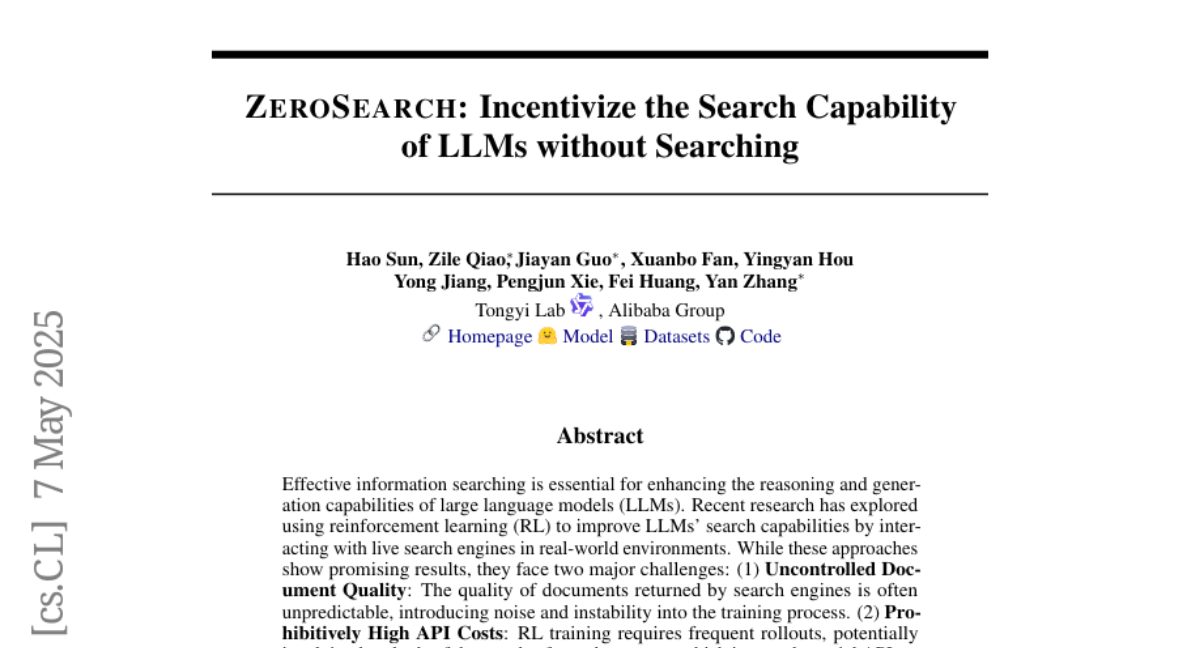ZeroSearch: Incentivize the Search Capability of LLMs without Searching
Hao Sun, Zile Qiao, Jiayan Guo, Xuanbo Fan, Yingyan Hou, Yong Jiang, Pengjun Xie, Fei Huang, Yan Zhang
2025-05-08

Summary
This paper talks about a new method called ZeroSearch, which helps large language models get better at searching for information without actually using real search engines. The method uses special training techniques to make the models act more like good searchers, even though they aren't looking things up online.
What's the problem?
The problem is that training language models to search for information usually requires them to access real search engines, which can be expensive and sometimes unreliable. It also raises issues with the quality of documents they find and the costs of using APIs for searching.
What's the solution?
To solve this, the researchers created ZeroSearch, a training framework that uses reinforcement learning along with supervised fine-tuning and a step-by-step learning approach called curriculum-based rollouts. This lets the model learn how to search effectively by practicing with training data, instead of actually searching the web, which avoids the issues of document quality and high API costs.
Why it matters?
This matters because it makes language models more efficient and affordable when it comes to searching for information. By improving their search skills without needing actual online searches, these models can be used in more places and help more people without running into high costs or unreliable results.
Abstract
ZeroSearch is a reinforcement learning framework that improves LLM search capabilities without using real search engines, using supervised fine-tuning and curriculum-based rollouts to handle document quality and API cost challenges.